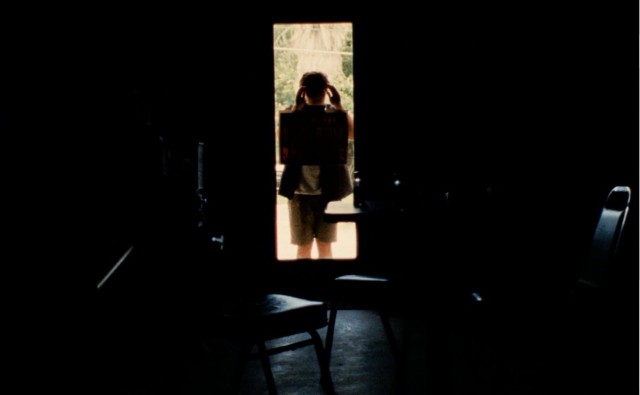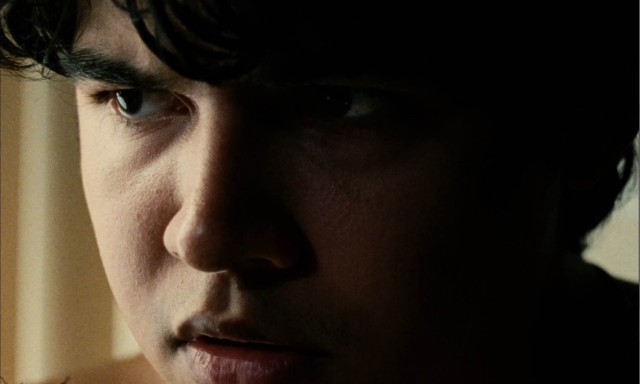It’s the end of Summer and Erik is preparing to leave his mother, his younger sister, and his hometown—everything he knows really—in order to head off to college. From an immigrant family, he is understandably proud of his hard work, and is excited about the new life that he is set to embark upon. However, his optimistic plan for the future is upended when ICE raids the restaurant where his mother works. In Green Water, writer/director Carlos Estrada captures an integral part of the American undocumented immigrant experience—a pervasive uncertainty of the future and the fear that generates. Told from the perspective of the kids, the film differentiates itself from other social-issue immigrant narratives we’ve seen by doubling as a coming-of-age story where the protagonist is forced to do more growing up than he was supposed to.
The past several years have seen a spike in immigrant narratives. Filmmaking is often a mirror to real life, and the rise of immigration as a hot-button political issue has increased the valence of the subject for storytellers. But, while most of the films we see focus on the immigrant journey (whether through bureaucratic or illegal means) more rare is it to see the effect it has on the rest of the family. Estrada and co-writer Tom Santos pen a narrative solely focused on people affected by deportation, and how it shatters their lives in a different way. Estrada confesses that the story was very personal as it “came about from me processing old personal fears of mine”.
Green Water is subtle in how it deals with the event that throws Erik’s life into disarray. First off, it happens off-camera, reinforcing the artistic decision to center the film on the POV of the kids. The film becomes a chronicle of Erik’s ability to process the enormity of what is happening, and his slow, dawning comprehension that everything he has worked towards might come to nothing. “The fear of having your parents taken away from you is a very common fear as kids of immigrants”, Estrada shared. Erik has done “everything right” and just when he is on the precipice of the quintessential American Dream of upward mobility, he must confront the prospect of losing it in order to serve as the adult figure in his sister’s life. “Unfortunately, a lot of kids of immigrants have to grow up quicker than normal simply in order to survive”, Estrada admits.
The emotional strength of the film comes from both the authenticity of the storytelling and the intimacy Estrada crafts in the film. During the writing process, he decided he wanted to shoot on film to accentuate the “rawness of the subject matter”, and with DP Leo Aguirre, together they opted to shoot much of the film in close-ups. As you can imagine this sort of proximity to the actors helps craft an immediate connection with the audience, drawing the viewer in.
It also puts a lot of pressure on the performances and, as mentioned before, this is very much a film about characters reacting and processing their situation. This fear they’ve come to learn to live with must be presented subtextually and both David De La Barcena and Kianna Sanchez’s performances are remarkable. Their sibling chemistry is instantly endearing and the way both deal with the upcoming absence of their mother encompasses the complex arc Estrada and Santos have written for the characters. De La Barcena must do the majority of the heavy lifting and does not miss a beat as he cycles through conflicting emotions of anger, fear, denial, and selfishness on the way to resolve and responsibility, buoyed throughout by the love he has for his sister.
We are excited to host the online premiere of Green Water after a successful festival run that includes New Orleans and Indie Memphis, as well as several awards. Estrada is currently working on the development of two feature films: one deals with a female matadora learning to live on her own in the States, and another about a young Mexican-American man who is killed by the police in 70’s Houston.

 Céline Roustan
Céline Roustan

